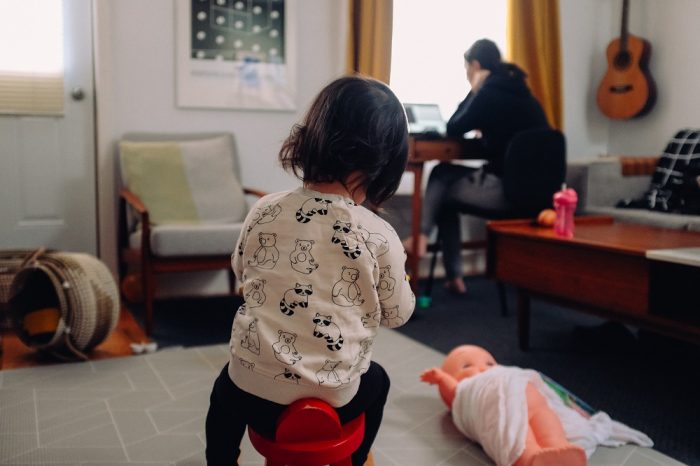
Like many companies since the COVID-19 lockdown started, all at TVision are working from home. Although we’ve always had that flexibility, working solely from home is new to us.
Using Microsoft Teams to keep connected and conduct our meetings, adjusting to this new environment has been interesting to say the least. Juggling family life, with all that home schooling entails for those with school age children, as well as toddlers and more, it’s not a straight forward process.
Britain in lockdown – home working begins
When lockdown in the UK officially started on the 23 March, all those who were able to work from home were encouraged to do so by the government. Before the official announcement, however, some companies started to put contingency plans in place to allow staff to stay home and stay safe. Others following quickly after as soon as the news broke.
As big IT firms leapt at the opportunity to host this capability, Microsoft, Google and IBM were just some of the names promoting their products. Businesses sourced and issued laptops, with HR teams issuing advice on how to work from home effectively.
However, you’re either a home worker or not. It’s almost a mental attitude – and some of us just aren’t built for it. Some people experience distraction, procrastination, as they need to bounce ideas off colleagues for inspiration and motivation. A lack of routine and structure in uncertain times means working from home isn’t as easy, or in fact as enjoyable, as it first seems.
Expert insight
In a Gartner article from the 3rd March, Senior Director, Advisory at Gartner said:

“We’re being forced into the world’s largest work-from-home experiment and, so far, it hasn’t been easy for a lot of organizations to implement…In a recent webinar snap poll, 91% of attending HR leaders (all in Asia/Pacific) indicated that they have implemented ‘work from home’ arrangements since the outbreak, but the biggest challenge stems from the lack of technology infrastructure and lack of comfort with new ways of working.”
Some companies just aren’t modelled to work in this way, or are part of an industry where this either isn’t possible or is really difficult to arrange.
There’s also a historic chain of thought that working from home/remotely is too costly. And that’s not to mention the perceived level of trust/distrust that goes with working from home, as some line managers do not engage effectively with their teams face-to-face, never mind on a Teams call or whatever technology is being used for communication.
How many companies will continue some form or homeworking when this all ends? Will flexible working become a more widespread and accepted option for employees? Will business be conducted more effectively as a better work/life balance is achieved in this time?
Will we ever go back to “normal”? Or will we all embrace a new normal going forwards… Barclays and, marketing and advertising agency, WPP have said in a recent Guardian article that they do not see a return to city centre offices full of employees.
Jes Staley, the chief executive of Barclays, said “I think the notion of putting 7,000 people in a building may be a thing of the past, and we will find ways to operate with more distancing over a much longer period of time.”
A survey in China has also found a link between social network activity between co-workers and levels of job satisfaction. Bringing people closer, at TVision we can also attest to this.
Finding out things we didn’t previously know about our colleagues, offering to help with shopping where needed and sharing many a meme via WhatsApp, there is a definite silver lining to any teething pains / child interruptions that are regularly taking place. Building relationships with colleagues or departments that wouldn’t ordinarily have been made, gaining approvals or responses quicker, or simply being more collaborative than before – there are many positives.
How is it working for you?
Although there are many great things that have come out of such a difficult situation, there is undoubtedly a severe lack of human connection and face-to-face interaction. A new term has been coined – Zoom fatigue.
Many people are probably experiencing this too. It’s because video calls force us to focus more intently on conversations in order to absorb information. More information on this can be found in the Harvard Business Review here.
Varying quality of home broadband connection, the catch up conversations before a meeting starts, or finding a suitable place to park yourself for the day – how is working from home working for you and your business?
Are you working longer than before? Are you taking adequate breaks? Are you switching off effectively at the end of the day? Or are you finding yourself starting earlier, finishing later and not taking a lunch break? … Are you getting out for a walk in the fresh air once a day?
Potentially creating as many unhealthy work habits as healthy ones – how comfortable are you in a home environment?
With no real pearls of wisdom to offer – whether you can’t wait to get back into the office or are happy at your makeshift office at the kitchen table, all we can say is there is light at the end of the tunnel.

Sailing alongside you, please don’t hesitate to get in touch with us here at TVision with any of your support concerns or implementation advice. For us its business as usual.

